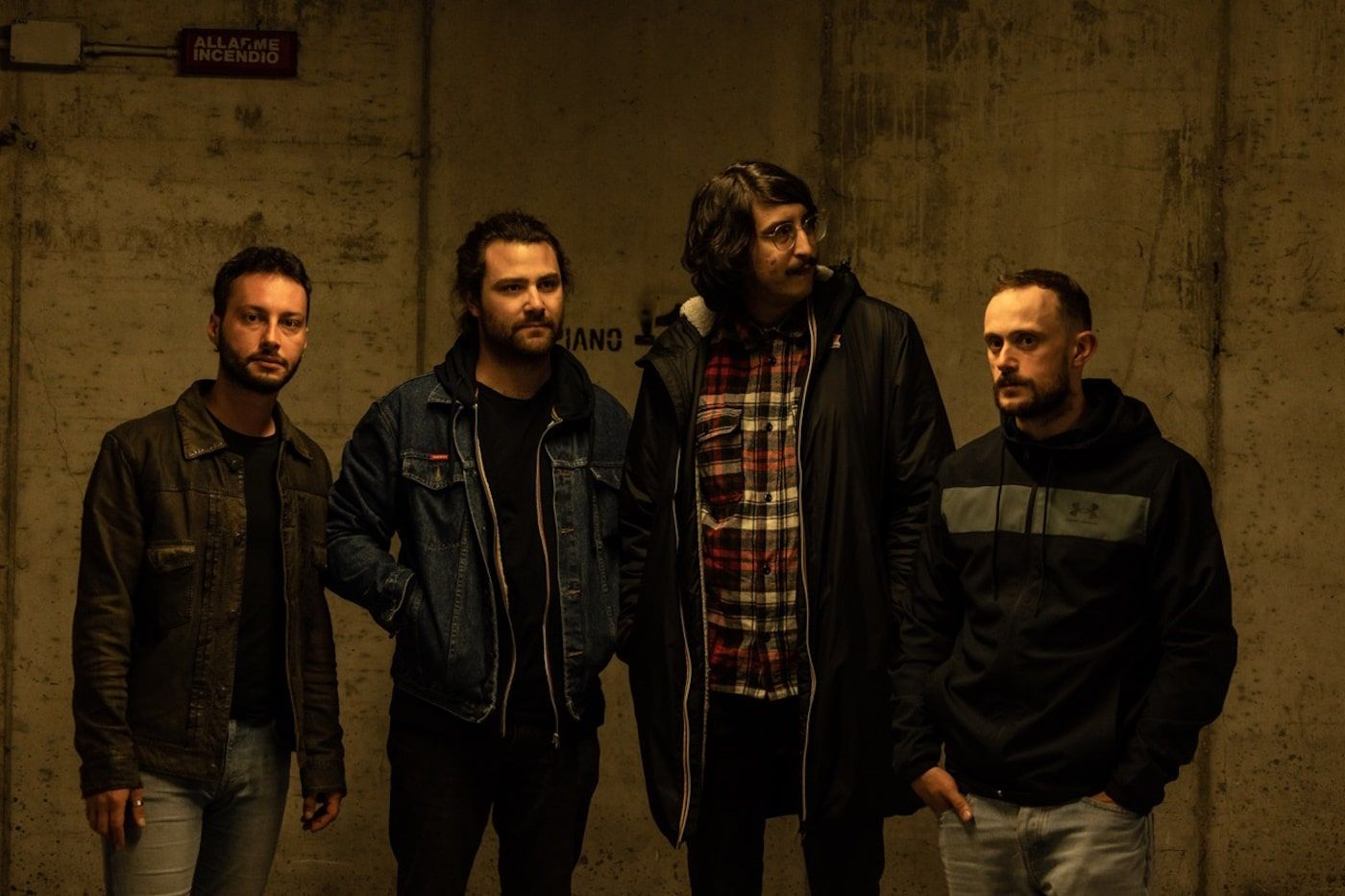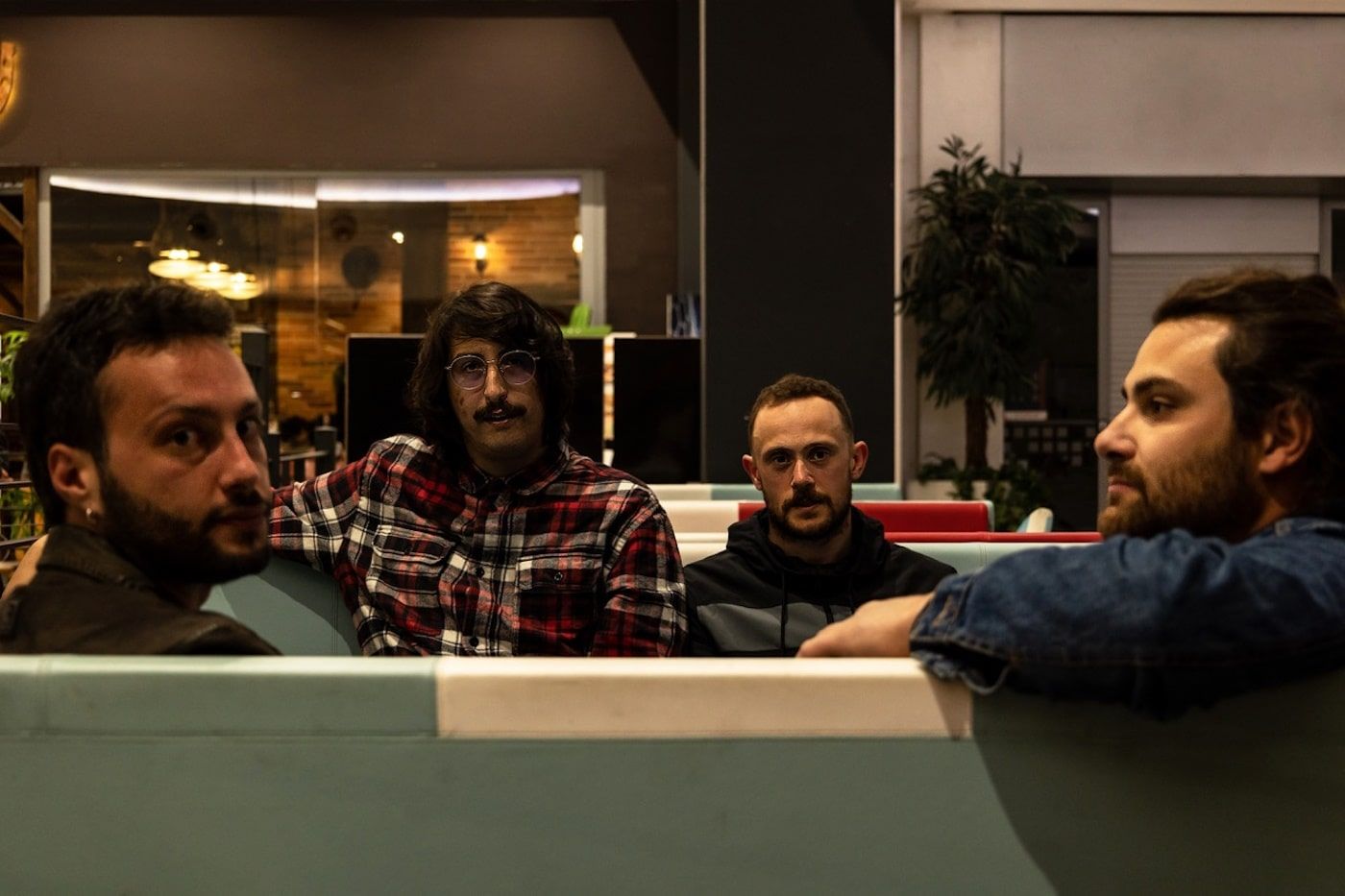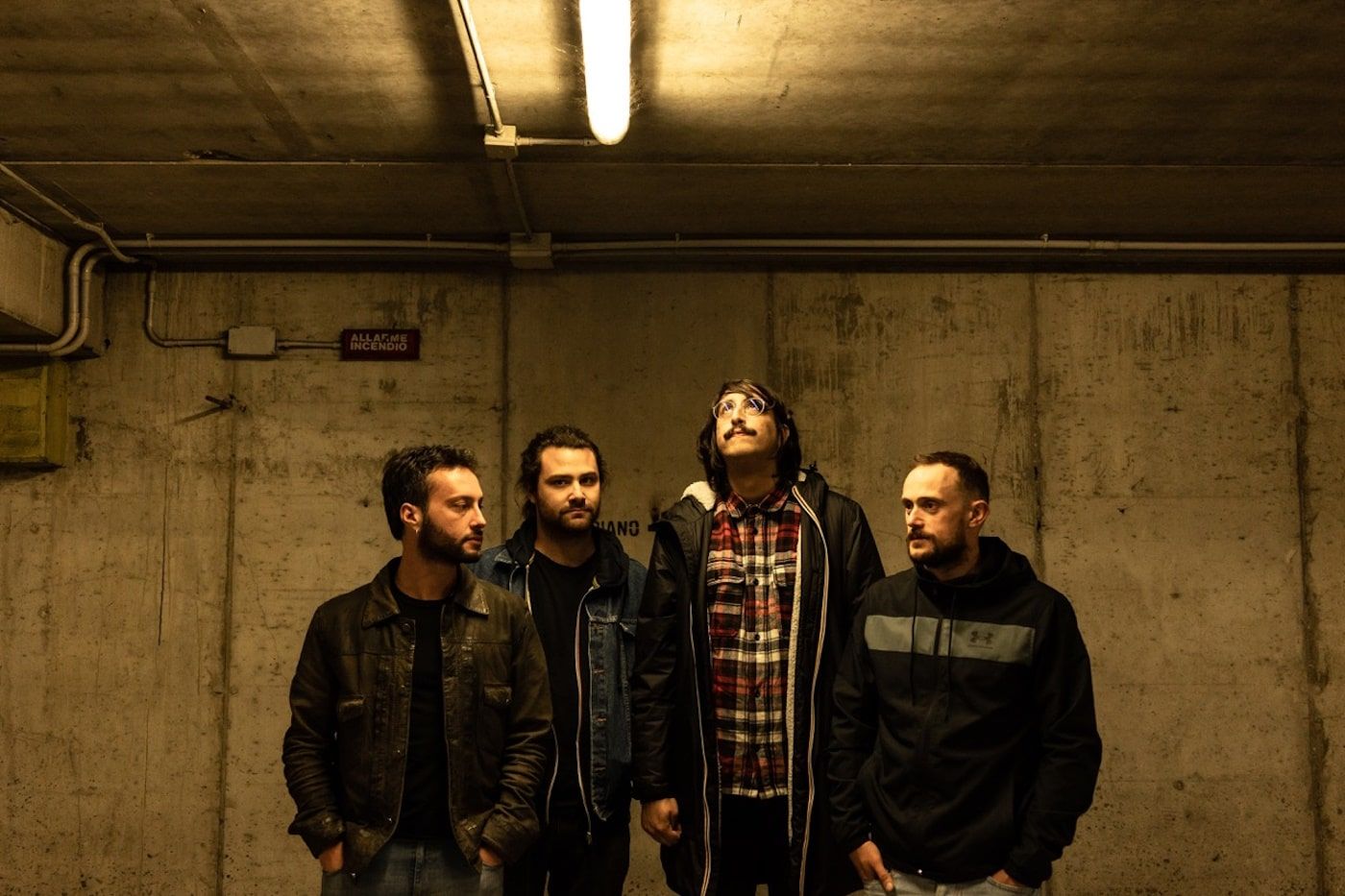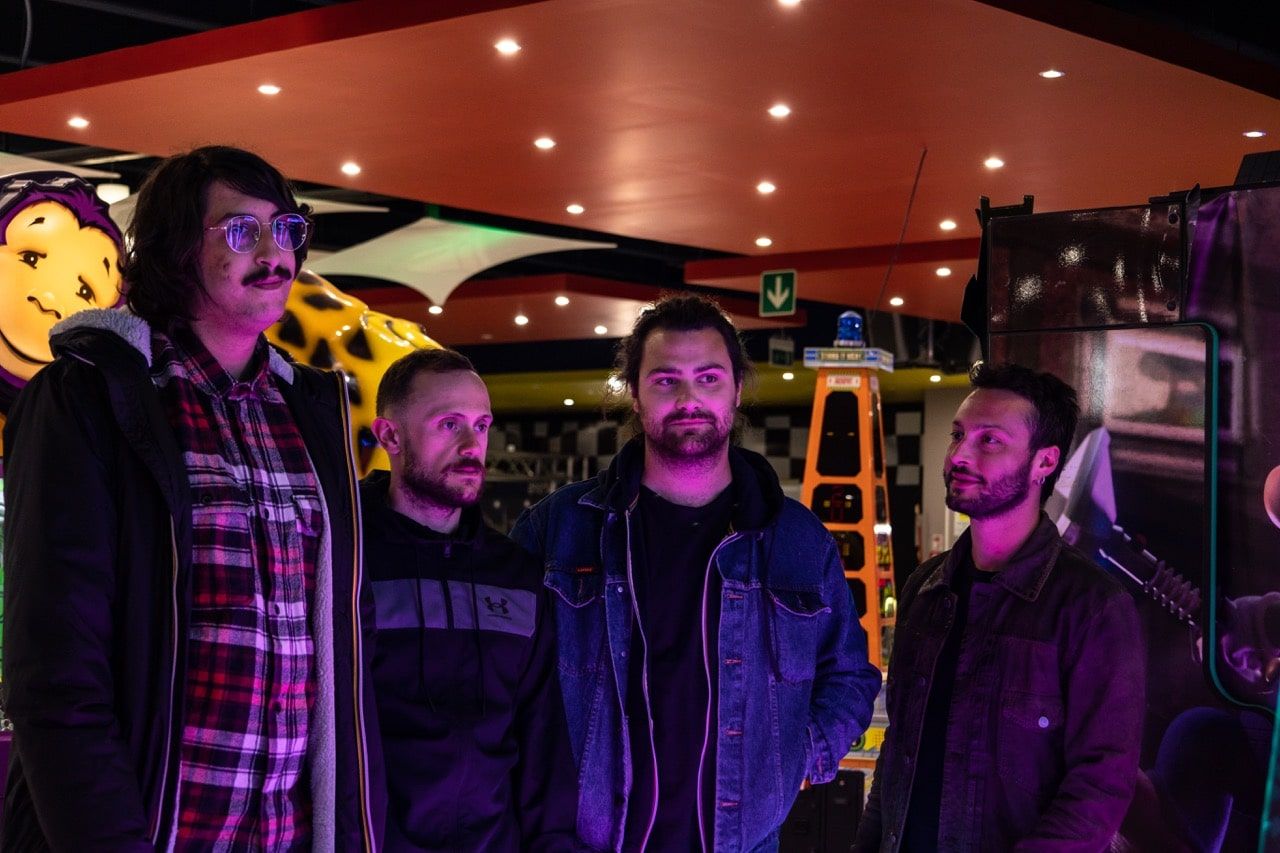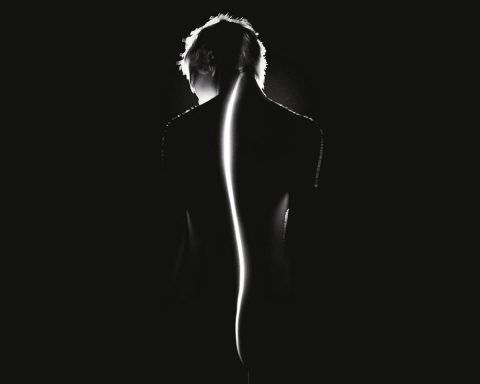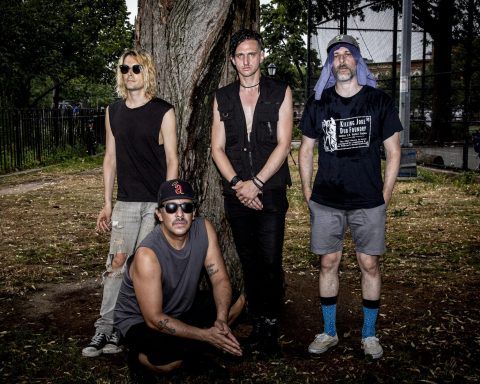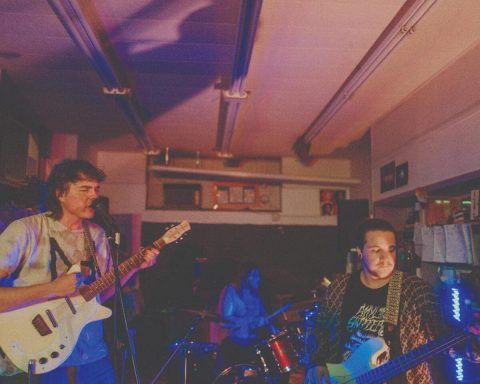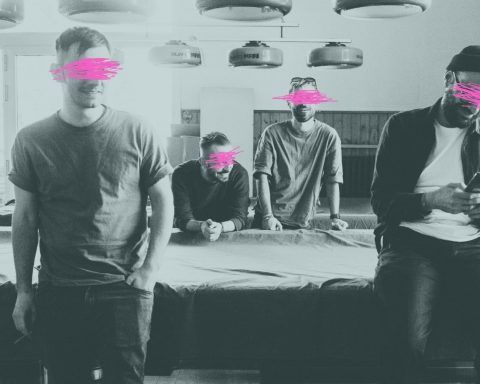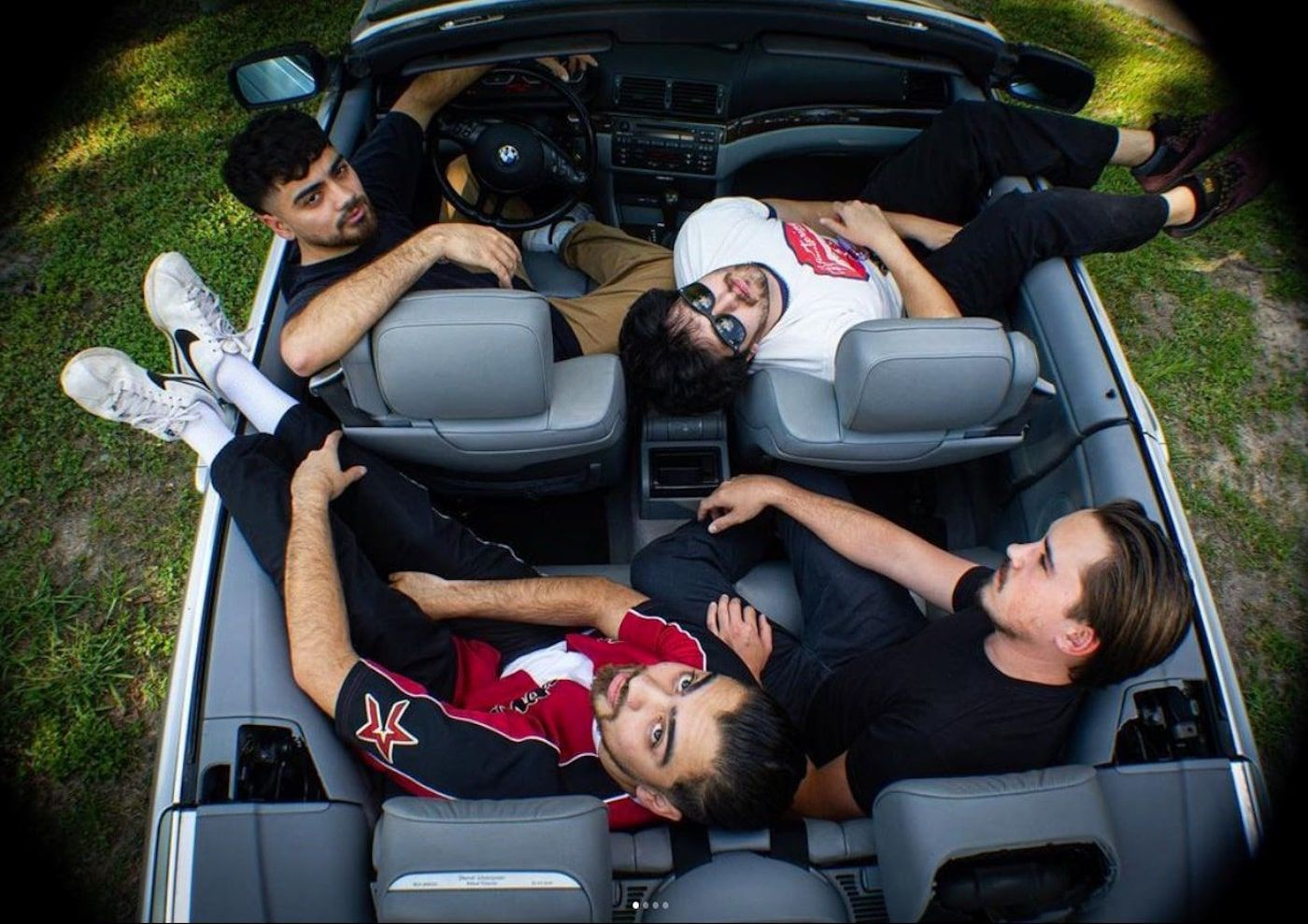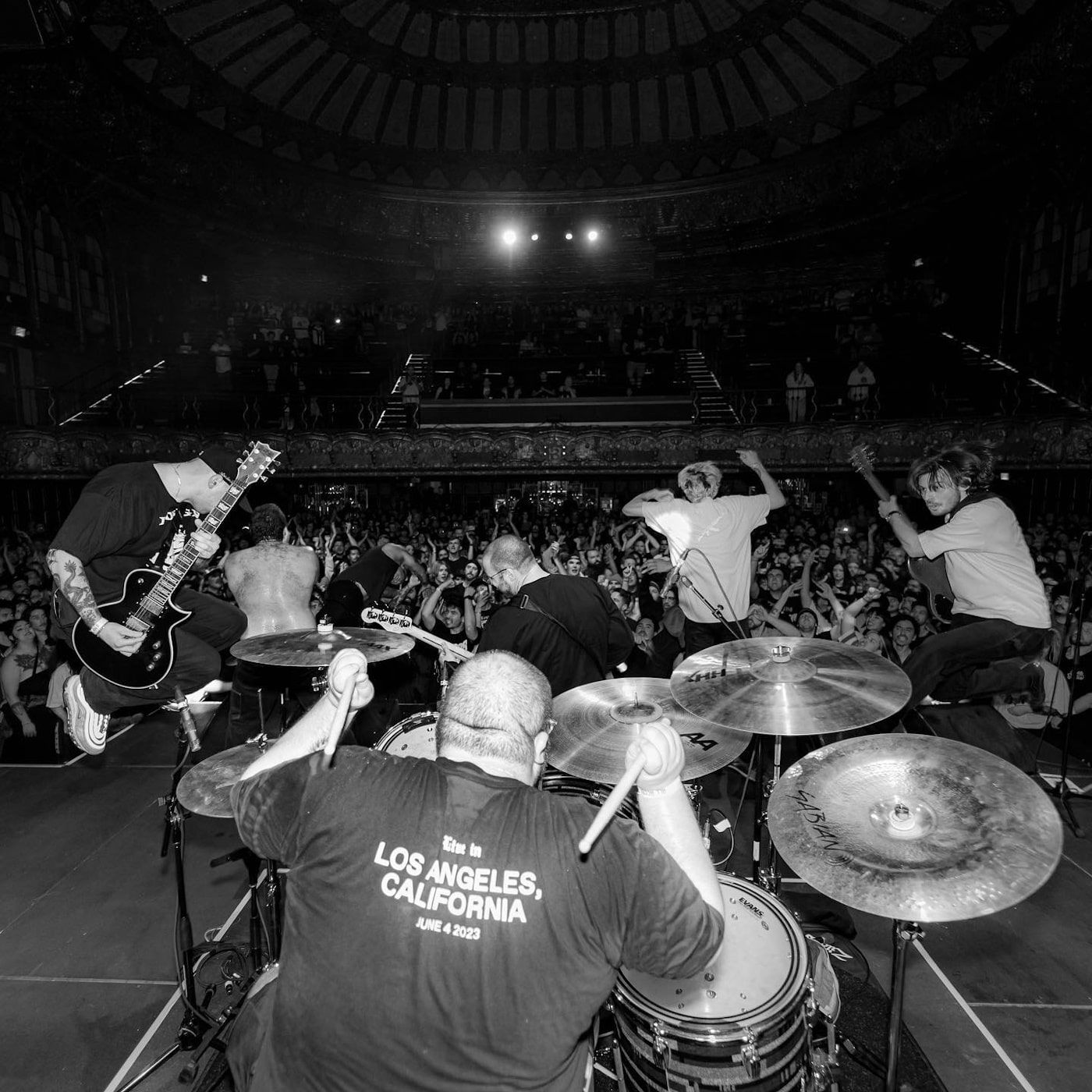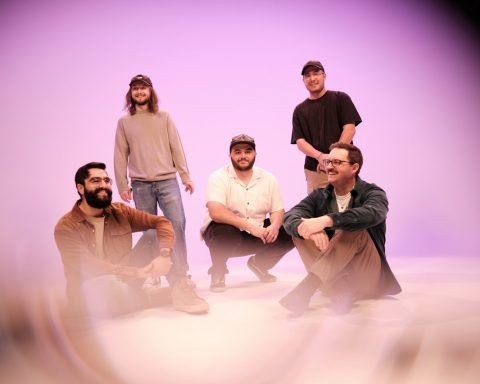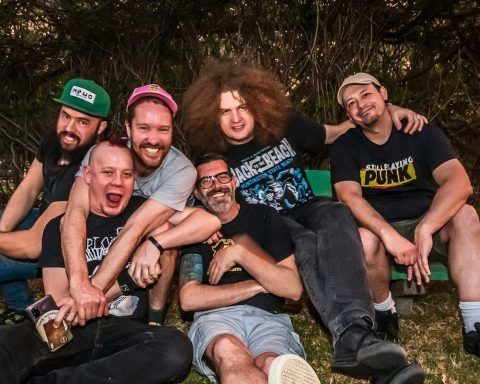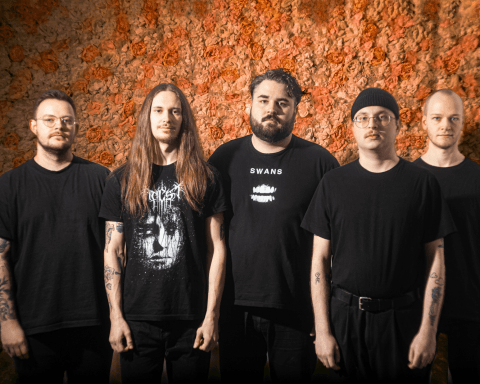The latest offering from Morningviews, “La sindrome dell’età dell’oro,” echoes with their unmistakable evolution, heralding their first foray into an Italian-language album. What’s striking about the album is how it poignantly encapsulates the influence of their environmental and personal contexts. The pieces were born in the heart of the pandemic, in their rehearsal room, from the minds and hands of Roberto Duca, Roberto Lucarelli, Simone Casaglia, and Angelo Corbacelli, who collaborated to gift us nine musical narratives, each in their unique vein of post-hardcore and shoegaze-inflected post-rock.
Painstakingly crafted with modest equipment and an evaluation copy of Reaper, the album is a testament to the band’s resilience and resourcefulness. The recording process wasn’t a solitary endeavor, however, but a series of gatherings peppered with friends, beer, and a shared camaraderie that lightens the demanding process of creation. The result is a collection of tracks, deeply personal and rooted in their shared experiences, yet universal in their appeal.
The album commences on a riveting note, plunging the listener into a maelstrom of heavy and atmospheric soundscapes reminiscent of Respire and Svalbard. And as we traverse through the album, it leads us to the quieter, thoughtful corners before throwing us headlong into the tumultuous musical storm that defines Morningviews.
Their influences echo throughout the tracks, as listeners can catch the occasional glimmers of Touché Amoré, The Saddest Landscape, or late 90s American screamo, amid a mélange of atmospheric post-rock and post-hardcore. But this isn’t to say that Morningviews is merely an echo chamber. Rather, their nuanced grasp of their influences allows them to craft a sound that is distinctly their own—an amalgamation of divergent styles converging into a harmonious whole.
“La sindrome dell’età dell’oro” meanders through an exploration of nostalgia, the transient nature of happiness, and our complex relationship with the past and present. It paints vivid vignettes of life’s dilemmas, all against the backdrop of their trademark sound that swings between ferocity and serenity. As the last notes of the instrumental outro fade away, we are left to confront the album’s central theme: the inevitable fallacy of seeking refuge in a glorified past, rather than embracing the present in all its disarray.
In “La sindrome dell’età dell’oro,” Morningviews has not only recorded an album but charted an intimate journey through their collective experiences. It’s a testament to their evolution as musicians and storytellers, and it will resonate with listeners willing to accompany them on this immersive ride.
Track by track commentary, by Morningviews:
Te, in qualche modo
I remember writing the instrumental of this one on our computers during one of the lockdowns. We were listening to Respire and Svalbard and we wanted this to sound heavy and atmospheric. When we started playing it as a band, we thought it could’ve been an instrumental intro to gigs. We intended to play it like that at our very first post-lockdown gig, but we wrote lyrics like two days before the gig and we ended up singing them. The triplet final part wasn’t there yet (even if it was in the original demo), we added it months later. The song sets the tone for the whole record. It’s a fast paced, heavy song with big atmospheres. The lyrics are about living somewhere but not feeling at home and refuging into the past as if it was way better. Spoiler: it was not.
Sofia
This is one of the two older tracks of the record. In its original form it was actually a poppy song resembling the first Radiohead record! Its lyrics were in English and we just didn’t record it when recording You Are Not The Places You Live In, our first record, because we thought it didn’t fit. When we started feeling like we needed to focus more on the post-hardcore side of our music we got back to it and changed it a lot, turning it into the song it is now. Touché Amoré was the biggest influence on this. Its lyrics are mostly a translation of the old English ones: the inspiration came from Russian philosophy and the concept of sofia, and it’s about feeling transcended through loving someone or something. It can be knowledge (as it is in the Russian concept of Sofia), a person, music, art, your friends, your pets, whatever.
Vicolo dell’arco
Another lockdown written one. When approaching it, we were striving to write something that sounded like The Saddest Landscape or late 90s American screamo, with a beautiful, melodic starting and a heavier prosecution. It ended up being like that and the “cleaner” part basically is the same as the demo I got out of lockdown boredom. The heavier part changed when we played it all together. The choruses are, yet again, inspired by Touché Amoré. Vicolo dell’arco was the road I lived in last year while living in another city for work. It was a very narrow street where old (and lovely) people were living and everything was very slow. Funny is that the parallel road was one of the busiest streets of that city, with trucks and cars going fast night and day. My cat, who lives inside my apartment now and she did back then, wanted to go there all the time but it was very risky. Thankfully, she never got hurt.
Niente paura, Hokusai
Most of the lyrics wrote for the records were written by me, then we worked on them together to change whichever part could be better. Niente paura, Hokusai is an exception: Angelo wrote it. He and Roberto (the other Roberto) wrote the entire instrumental too. I think it’s the last song we wrote before recordings. It’s a fast one, maybe the most metal-leaning song on the whole album. Living in central Italy small towns can be pretty dull. You find yourself repeating your days every day, not doing anything to change and being in a constant stasis. Not a positive one. This one is about it, the urge to make some waves to move calm lake (literally, we’re from a city with a lake) you’re swimming in.
Così confuso da colpirsi da solo
This is another old one. We wrote it right after coming out of the studio with our first record in our hands. Its working title was “spaccarullo”, which translates to something like “snarebreaker”, because Angelo broke his snare while playing it. This one had English lyrics too and it was called It Hurt Itself in Its Confusion, which is the literal translation of the Italian title. It’s a quote from Pokémon games, when one of the creatures is confused and literally beats itself. That was how I felt when I wrote the lyrics to this one. I wasn’t beating myself physically, but I couldn’t understand what I wanted and everything was very confusing. I wrote these lyrics while I was sitting on a bench in Milan, the day after a Mineral gig. I can’t remember where we took inspiration for the instrumental, really. I only know that when it opens up after that pretty long central instrumental part, we wanted it to sound like early mewithoutYou.
c’ero una volta
This is an interlude we wrote while recording the record. It starts where Così confuso ended up. It has a sample from the beginning of the film Magnolia, in which the narrator depicts a weird story about a guy dying by being accidentally shot through a window by his mother while he was jumping from a roof. The narrator asks himself if we can really think it was something that happened by accident or if it was part of a bigger picture. Such theme is pretty much in every lyric of the record, so we thought it would’ve been cool to have this sample over the interlude.
L’età dell’oro
This is kind of a title track and it’s a pretty diverse song. It starts with a The Fall Of Troy inspired intro and verse, then it shifts to a post-rockish interlude with intertwined vocals inspired by Raein, it goes to a pretty big, almost arena-sized chorus and ends up with a La Quiete inspired ending. Raein and La Quiete are the biggest Italian screamo bands ever, so it was pretty natural to have something that paid tribute to those two wonderful bands. The lyrics look at Sysyphus while he is pushing his famous rock and wonders if there’s actually someone looking at him while he does so. We all live through burden and suffering and lots and lots of bad stuff, but is that really for something? And if there’s a God, how can he not be disgusted by us while we do all sort of shitty things while pushing our rocks? We have personal answers to this, but we’re not sharing. That’s not the point.
Sirene
This one had English lyrics too, but not for too long. I think we actually never played the English version at a gig. With this one we tried to mix some early/mid-2000 post-hardcore influences like The Fall of Troy, Alexisonfire and (early) La Dispute with a shoegaze-y ending. The lyrics compare the sirens’ songs of that Ulysses myth to being attracted by destruction and trying to resist it. The lyrics for the ending of Sirene reprise the intial lyrics for Te, in qualche modo. It’s something that lots of band do, we know it, but those words really are a synthesis of the whole record. We tend to live like the past was better than now and the future will be even greater, but in fact we only have our present times and we should act on them. Instead of hoping for something that we don’t even know if and when it will happen or refuging ourselves in things that weren’t even that good for our own mental health, we could cherish the love (in its broader sense) we live right here and right now.
Dentro alle storie che non ho vissuto
An instrumental ending that used to be part of Sirene. We split these two parts because we wanted it to be the real ending for the record and not for just one song. It’s the post-rock number of the record: big reverbs, delays, distortions, drills and such. You know how it works.



